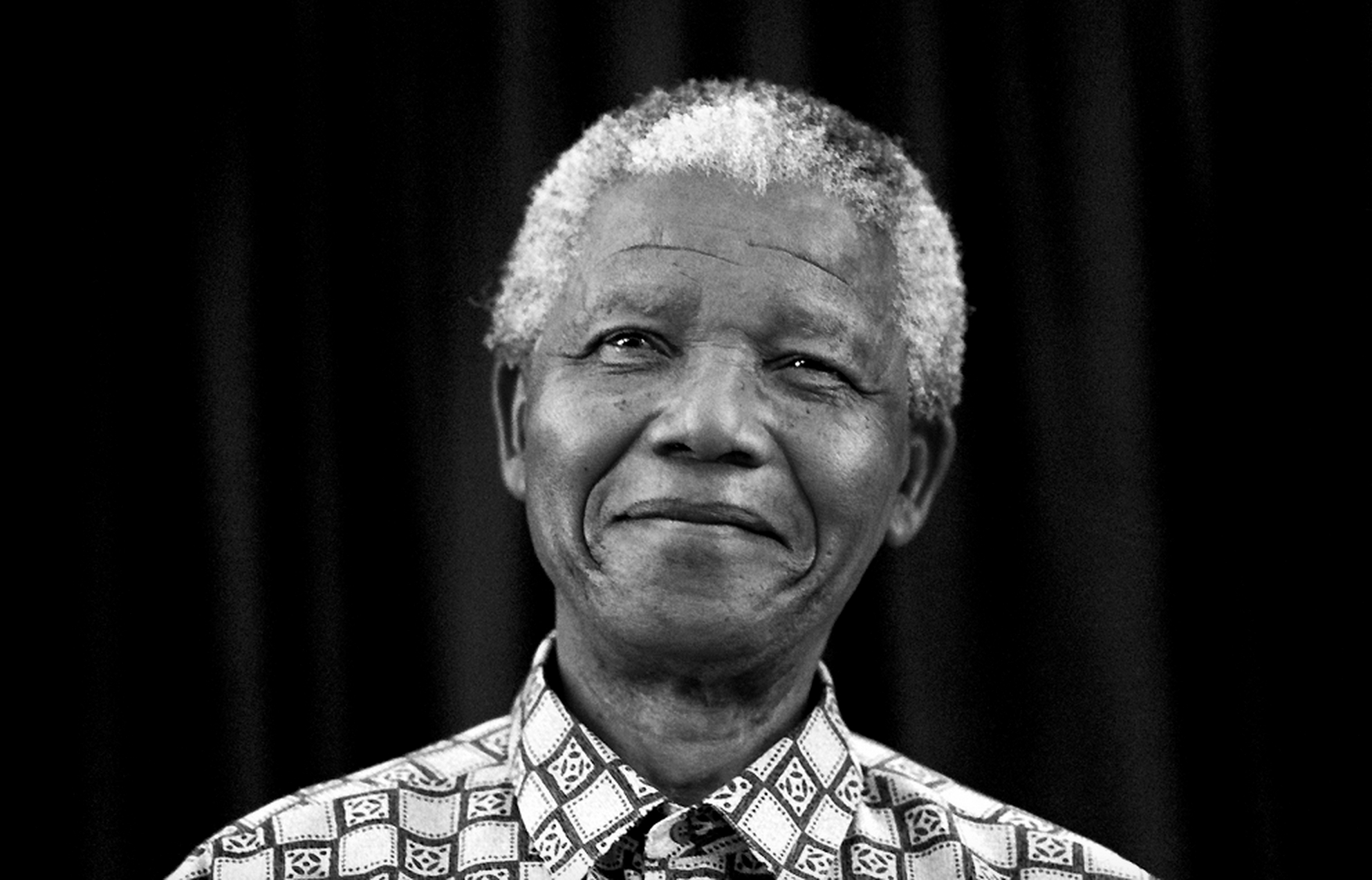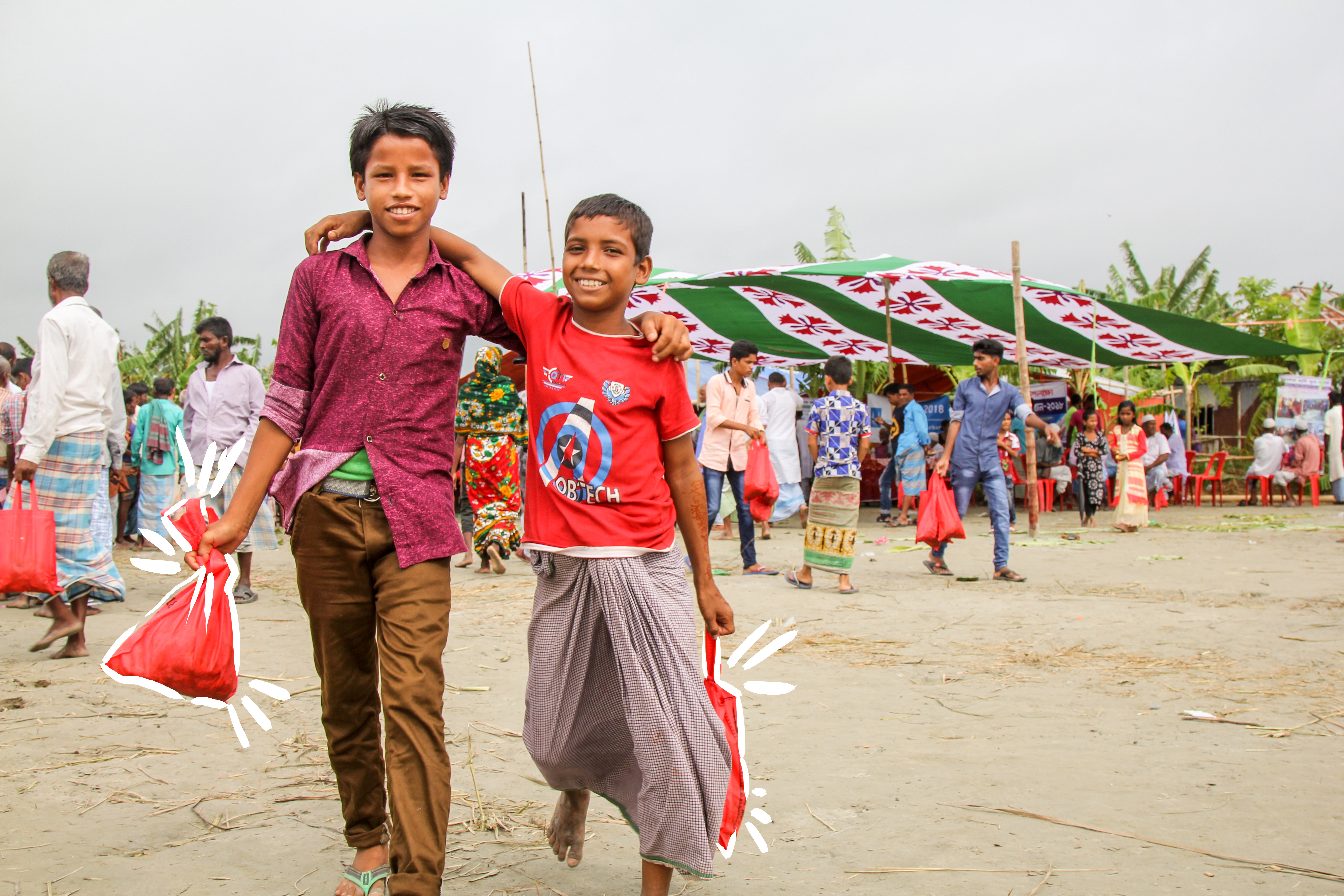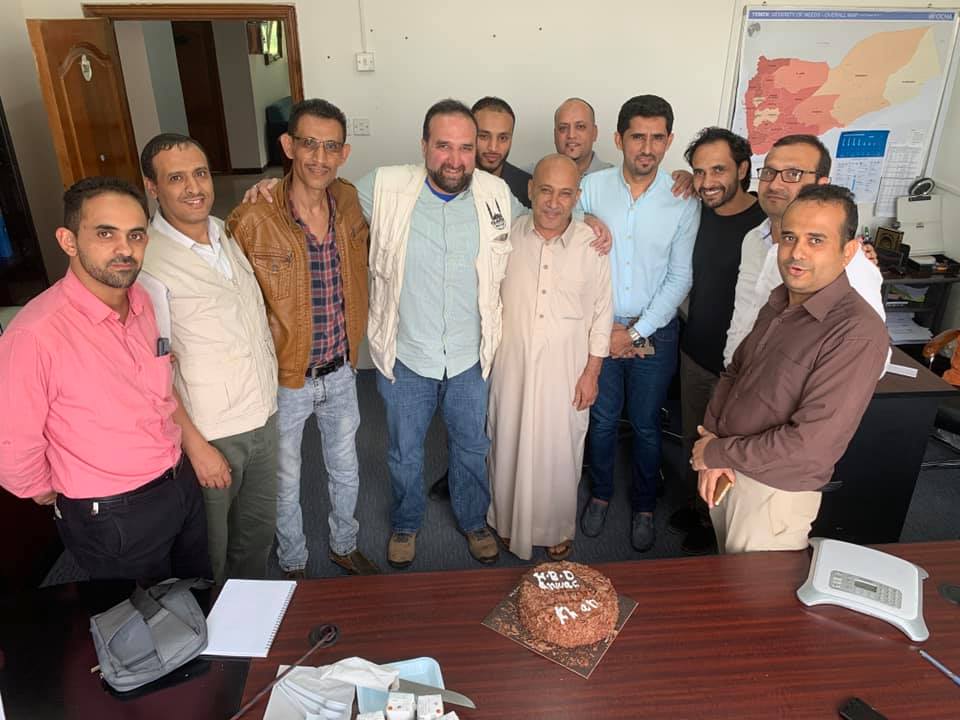3 POWERFUL Islamic Reminders About Your Neighbors For Eid
Nada Shawish is Communications Specialist at Islamic Relief USA.
In the throes of celebration — Eid al Adha (Happy Eid!) is a time to rejoice with family and friends—but in celebrating, it’s easy to forget people in need that live among us, like neighbors. Forgetting our neighbors during holidays is about as un-Godly as you can get in Islam. Your neighbors have rights over you every day, Allah (swt) says. It’s that serious. And you need to remember them, especially on holidays. (One of them is to share Eid al-Adha meat on Eid (be amazing and do this!) with your neighbors in need—more on this point later).

Here are the reminders about the importance of your neighbors on Eid al Adha — and everyday of the year.
1. First Expand “Neighbor”.
So, who are your neighbors? They’re not just the family next door (although they should be people you are extremely kind to as they are part of your neighborverse). Of course those people who literally live close to you are your neighbors.
But the concept of ‘neighborliness’ extends what it means to be a neighbor a lot further. There are your neighbors at work, the ones that you go to school with, the people that live in your city and your fellow countrymen.
And religion does not omit anyone from being recognized as a neighbor. Your neighbors include those who are Muslim, those who are relatives and are Muslim, those who are not Muslim, and those who are your relatives but are not Muslim.
Expanding the term “neighbor” improves your neighborliness in this world—recognizing all the neighbors around you in your daily life requires you to make a conscious effort to interact appropriately with all of those neighbors on a consistent basis. Neighborliness is a strong character trait that Allah (swt) favors repeatedly in the Qur’an, and if you’re constantly behaving this way with those neighbors in your life, you’ll be a better person (and Muslim) for it.
2. Stretch Your Neighborliness.
You should make every effort to not just recognize your neighbors, but also actually be a good neighbor. What does it mean to be a good neighbor? It means that you extend good neighborliness to all your neighbors.
As recommended by Imam Ali ibn al-Husayn (as) in Risalat al-Huquq good neighborliness requires that your neighbor:
• Feels safe from you
• Has his or her interests protected in his or her absence by you
• Is shown respect in the presence of you
• Feels comfortable coming to you for help
• Is helped by you when inflicted with any injustice
• Is not criticized maliciously by you for faults
• Is criticized constructively by you to overcome improper habits
• Is not left by you in calamity within reason
• Feels no ill-conduct towards you (within your control)
• Doesn’t feel your boasts over them in encroaching property or wealth
• Is forgiven by you for sins, for Allah (swt) is the Most Forgiving
Stretching what it means to be a good neighbor was an action of Prophet Muhammad (pbuh), and should be what we strive for too.
Aisha (as) reported: “I heard the Messenger of Allah, peace be upon him, say, ‘Jibreel, may Allah bless him and grant him peace, kept on recommending that I treat neighbors well until I thought that he would order me to treat them as my heirs.’” (Sahih Muslim)
3. Follow the best examples you have.
There are extensive examples of how to treat neighbors well in Islam—and they’re not limited to saying hello and maintaining personal space.
Here are some less talked about examples (there are many) of neighborliness in Islam that we should consider more often:
• Sharing Eid al-Adha meat (Qurbani) with non-Muslim neighbors:
When ‘Abdullaah ibn ‘Umar, may Allah be pleased with him, slaughtered a sheep, he said to his servant, “When you skin it, begin [distributing it] by going to our Jewish neighbor.” As a general rule of thumb, you should try to feed those less fortunate than you. But go beyond that. Two points are made here: The sharing of meat offered to Allah on Eid al-Adha is something to be shared with more than just Muslim neighbors. The sharing of this special offering with non-Muslim neighbors is important in that it warms your neighbors to you and to Islam. More than that, it ensures no one goes without a nutritious meal on the occasion of Allah (swt), especially your neighbors. There are many ways to ensure that your neighbors in the United States have Eid al-Adha meat this year: Islamic Relief USA makes this act of neighborliness especially easy for you.
• Being attentive (and responsive) to the living conditions of neighbors:
Your conscience should help you take action towards neighborliness. Volunteer at a soup kitchen. Make meals and distribute them to neighbors your know are struggling (do you have any homeless neighbors?) Are you making or buying sweets this Eid? Consider getting a little extra to share with a neighbor you know might not be able to enjoy sweets because they’re too expensive.
• Ensuring that neighbors are not bothered by you (within your control):
And it was narrated from Abu Shurayh that the Prophet (blessings and peace of Allah be upon him) said: “By Allah, he does not believe; by Allah, he does not believe; by Allah, he does not believe.” It was said: O Messenger of Allah, who is that? He said: “The one whose neighbor is not safe from his annoyance.”
Give your neighbors space and treat them as you’d like to be treated. Being bothersome at work, in your community or on your street is not good neighborliness. Don’t nag someone constantly about street parking or his or her lawn, for example. Don’t exaggerate the space you need to take up to do your work. Be mindful of others’ feelings and ensure you’re boasts aren’t encroaching upon them. Be considerate, over all—especially on Eid when you may be having a large party or feast—consider including your neighborhood if you can.
• Give to the neighbors nearby first:
With so much tragedy in the world—we often compare living conditions and opportunities in the United States to those abroad. And when we give charity, we tend to give to people who live very far from us because we know that in war and famine, people really need help. Without diminishing the importance of giving charity abroad, I want to emphasize the importance of remembering to give to those close in proximity to you as well, as is related in part by Aisha, May Allah be pleased with her, about Prophet Muhammad, (pbuh):
Aisha (May Allah be pleased with her) reported:
I said, “O Messenger of Allah, I have two neighbors, to which of them should I send a present?” He replied, “To the one whose door is nearer to you”. (Bukhari)
On Eid, when giving gifts of charity of any kind—don’t forget those in your community, your state, and the country you live in. As they are proximate to you in space, they should also be proximate in mind.
This Eid al Adha, don’t forget your neighbors. And most of all, remember to be neighborly on one of the best days of the year for Muslims because:
“The best of companions in the sight of Allah Almighty is the best of them towards his companion, and the best of neighbors in the sight of Allah is the best of them towards his neighbor” [Al Albani].
And to all of you, my dear neighbors, I wish you a beautiful, creative, thoughtful, dynamic, prayerful, family-oriented, love-filled Eid al Adha.
Want to make sure that you share Eid with your neighbors in an amazing way?
Send Eid al Adha meat to a neighbor in need!



